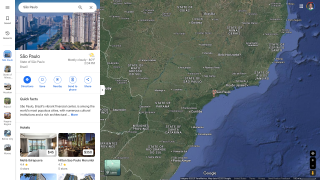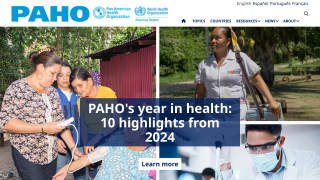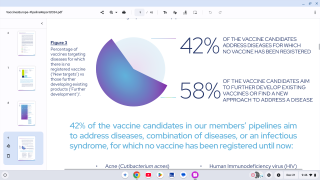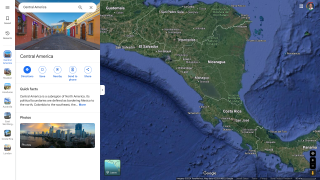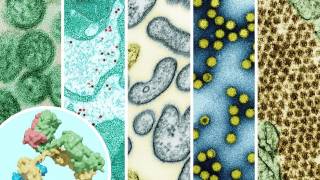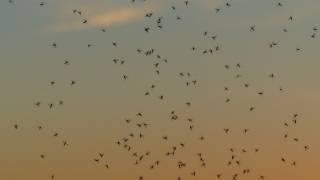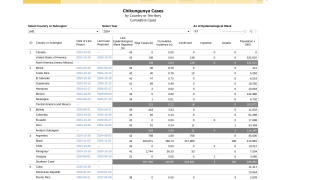Dengue Outbreak Warning Issued for the Americas

The Pan American Health Organization (PAHO) has called for countries in the Region of the Americas to prepare for possible outbreaks of the Dengue Fever virus.
In the first 6 weeks of 2019 in the Region of the Americas, there were 99,998 dengue cases and 28 related deaths, reported by the PAHO on February 22, 2019.
During 2018, there were 560,586 cases of dengue reported by the PAHO, including 3,535 severe cases of dengue and 336 deaths.
The actual numbers of dengue cases worldwide are underreported and many cases are misclassified, says the PAHO. One recent estimate indicates 390 million dengue infections per year.
As an example, in Mexico, there were 78,621 dengue cases, but only 12,706 confirmed cases, the states of Chiapas, Veracruz, Jalisco, Nuevo León, and San Luis Potosí accounting for 82 percent of the confirmed cases during 2018.
The US Centers for Disease Control and Prevention (CDC) publishes a website that displays where dengue cases are being reported.
During November 2018, the Florida Department of Health in Miami-Dade County confirmed a locally-acquired case of Dengue in the Miami-Dade County community.
Dengue is a mosquito-borne viral disease transmitted to humans by female mosquitoes mainly of the species Aedes aegypti and, to a lesser extent, Ae. albopictus.
In rare cases, there is evidence of dengue transmission from an infected pregnant mother to her fetus, says the CDC.
Currently, the only way to control or prevent the transmission of the dengue virus is the fight against Aedes aegypti.
Severe dengue, which is also known as Dengue Haemorrhagic Fever, has become a leading cause of hospitalization and death among children and adults in endemic regions.
There are 4 distinct, but closely related, serotypes of the virus that cause dengue (DEN-1, DEN-2, DEN-3, and DEN-4). Recovery from infection by one provides lifelong immunity against that particular serotype.
However, cross-immunity to the other dengue serotypes after recovery is only partial and temporary. Subsequent infections by other serotypes increase the risk of developing severe dengue.
Dr. Marcos Espinal, Director of the Department of Communicable Diseases and Environmental Determinants of Health, said in a press release, “Dengue’s complexity has been increasing over the years due to several factors such as unplanned urban growth, water and sanitation problems, climate change, and, in some countries, the simultaneous circulation of all four types of dengue, which increases the risk of serious cases and outbreaks.”
During 2018, Brazil, Guatemala, and Mexico reported co-circulation of all 4 dengue virus serotypes. Other countries, such as Bolivia, Colombia, Honduras, and Venezuela have reported co-circulation of serotypes DENV 1, DENV 2, and DENV 3.
Four countries reported co-circulation of two serotypes: Costa Rica and Panama (DENV 1 and DENV 2), Paraguay (DENV 1 and DENV 4), and Peru (DENV 2 and DENV 4).
In the countries and territories of the Caribbean such as Jamaica, the circulation of serotypes DENV 1 and DENV 3 has been reported.
The PAHO and the World Health Organization (WHO) are encouraging PAHO Member States to implement preparedness and response activities.
The main recommendations from PAHO focus on countries intensifying disease surveillance, as well as vector control measures to reduce mosquito populations that transmit the disease.
The PAHO also requests that countries ensure their health professionals are trained in the diagnosis of dengue and other arboviruses, as well as in the adequate management of patients with these diseases.
Dr. Espinal explained that the timely diagnosis of dengue has become more complex with the arrival of two new arboviruses: The chikungunya virus in 2013 and the Zika virus in 2015, which present similar symptomatology.
Dengue is also a more lethal arbovirus than chikungunya and Zika, but its treatment is relatively simple, inexpensive and very effective in saving lives.
If a physician is not sure whether a patient is presenting with dengue, chikungunya or Zika, PAHO recommends that the clinical management and treatment of dengue begins immediately, without waiting for laboratory diagnosis.
A recent study published on February 28, 2019, reported the average cost of Inpatient care related to the dengue virus was $26 in Burkina Faso and $134 in Cambodia, while the average cost of Outpatient care was $13 per episode in Burkina Faso and $23 in Kenya.
"The economic burden presented in the current study can be used to estimate more accurate vaccination benefits when conducting a cost-effectiveness analysis of future dengue fever vaccine interventions," these researchers said.
The DengVaxia vaccine produced by Sanofi is approved in 20 countries around the world, such as Brazil, El Salvador, Costa Rica, Paraguay, Guatemala, Peru, Indonesia, and Singapore, but not in the USA.
DengVaxia is currently under priority review by the US Food and Drug Administration.
And, Takeda’s dengue vaccine TAK-003, a live-attenuated tetravalent dengue vaccine candidate was reported efficacious in preventing dengue fever in a phase 3 study.
Recent dengue fever virus articles:
- Prior Dengue Immunity May Reduce Future Zika Risk
- Dengue Fever Virus Alert Reaches Dominica Island
- Are Hondurans Bringing Dengue and Mumps to the Border?
Our Trust Standards: Medical Advisory Committee



